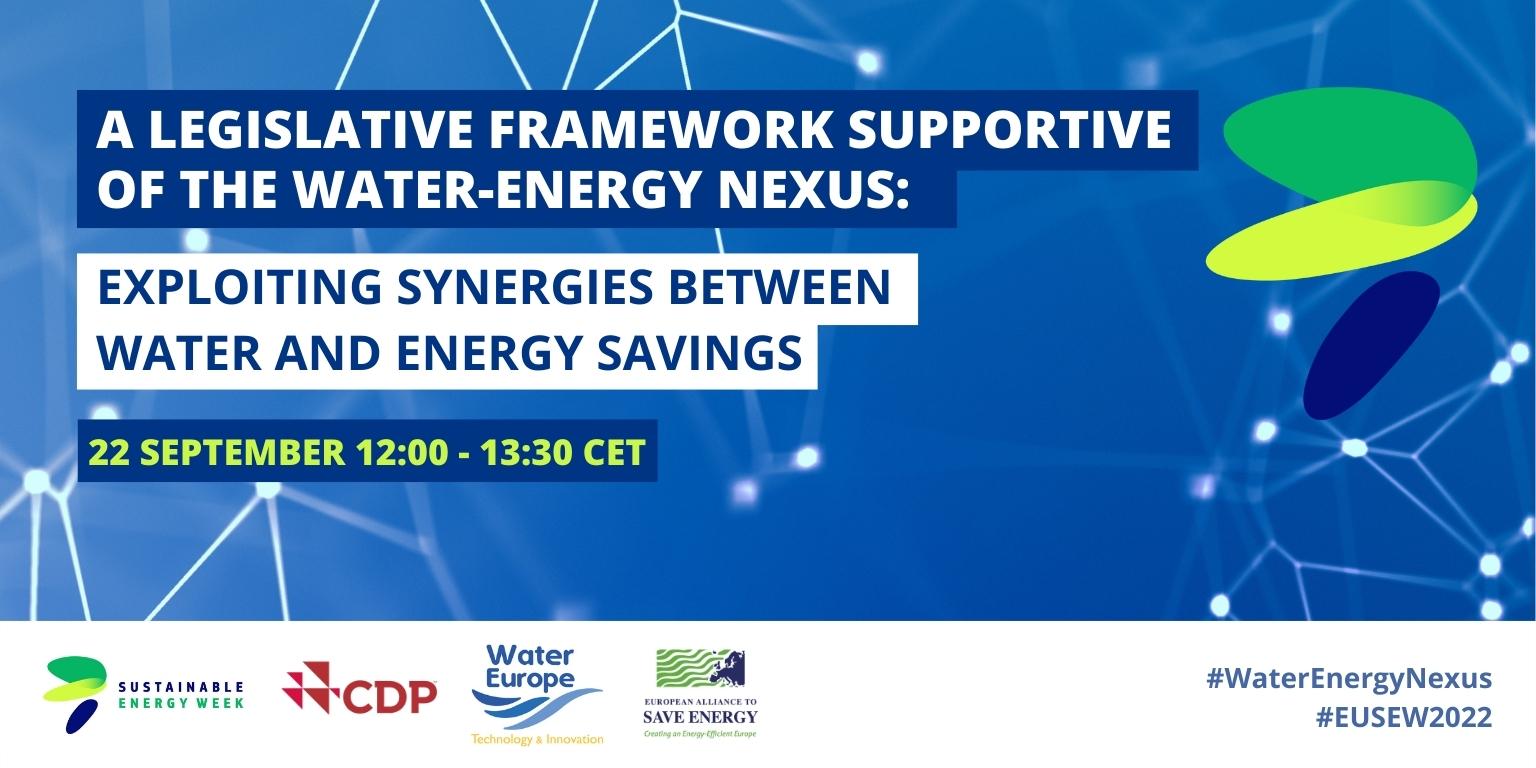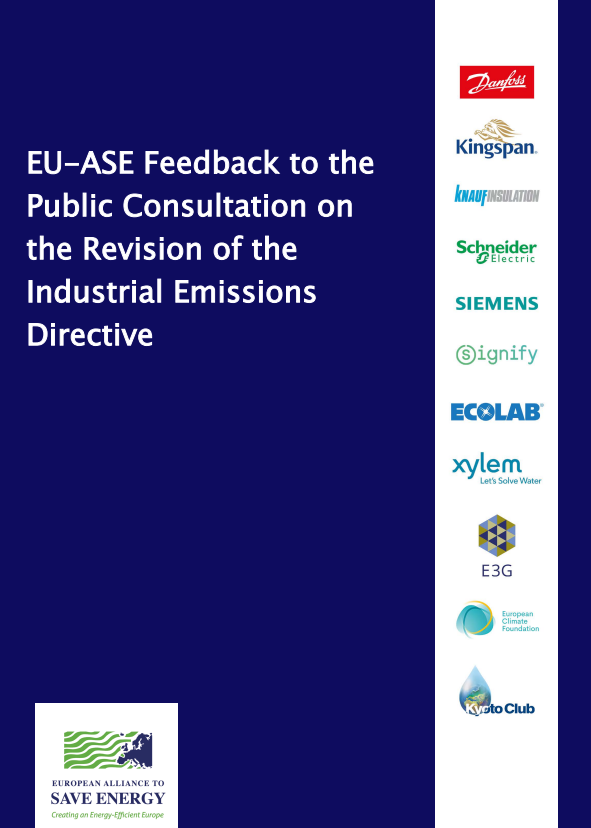A legislative framework supportive of the water-energy nexus: exploiting synergies between water & energy savings, 22 Sept 2022

On 22 September 2022, 12:00 – 13:30pm (CET) as part of the Extended Programme of European Sustainable Energy Week (EUSEW), the European Alliance to Save Energy (EU-ASE) hosted an online conference on the water-energy nexus to discuss how to design the best policy framework across the EED, UWWTD and IED.
The strong interdependencies that exist between energy and water are no longer to be demonstrated. Abstracting, distributing, heating, cooling or treating water requires huge amounts of energy while water is also used heavily in energy production and across many industrial processes.
The ongoing policy developments to unleash the potential of the water-energy nexus show progress is in the making but requires strong alignment between energy and water legislations. The panel will discuss how to ensure coherence across the EED, UWWTD and IED.
Moderator:
- Agnese Danelon, Director, Government Relations Europe, Ecolab
Speakers:
- Vania Paccagnan, Senior Global Policy Manager, Water at CDP Europe
- Veronica Manfredi, DG ENVI, European Commission
- AbdelKader Meroufel, WE Water Distribution infrastructure & Energy WG leader, Water Europe
- Tania Pentcheva, Senior Government and Industry Relations, Xylem
- Monica Frassoni, President, European Alliance to Save Energy




